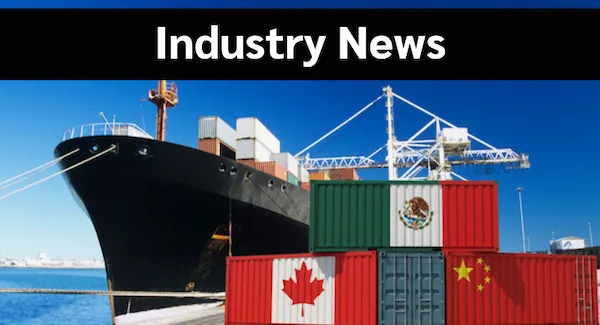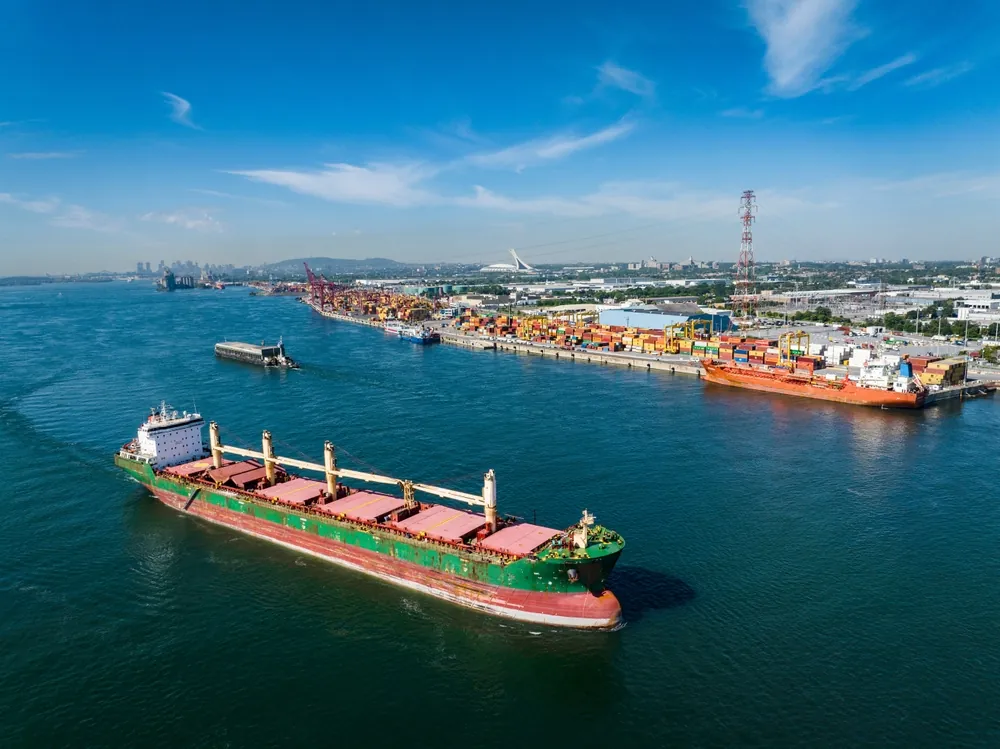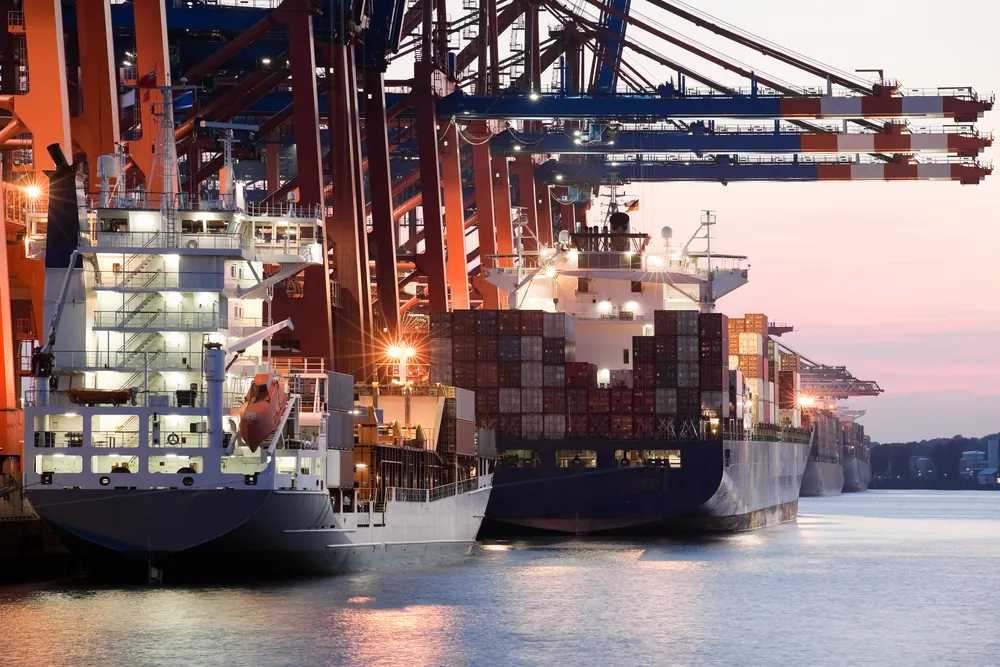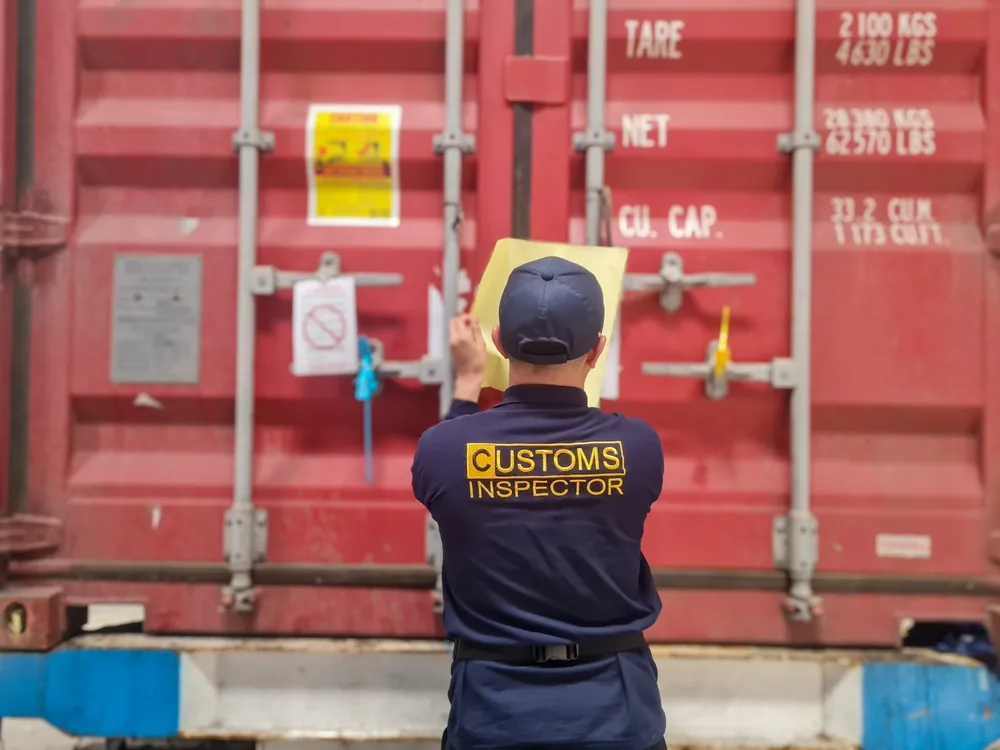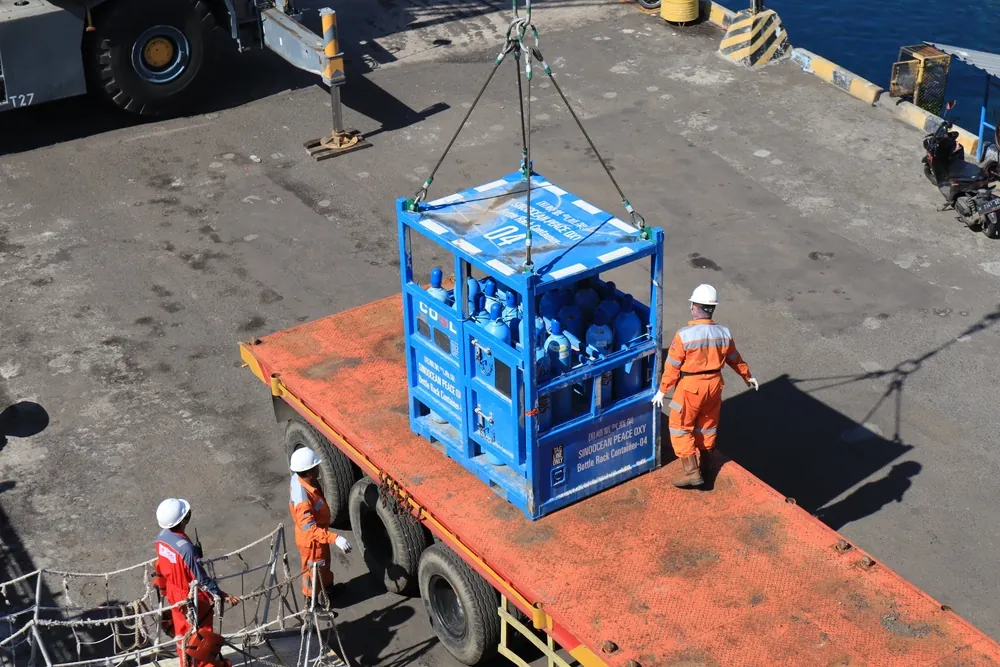New Tariffs Shake Up the Freight Industry
President Trump’s newly announced tariffs are disrupting global trade flows and reshaping logistics strategies across America.
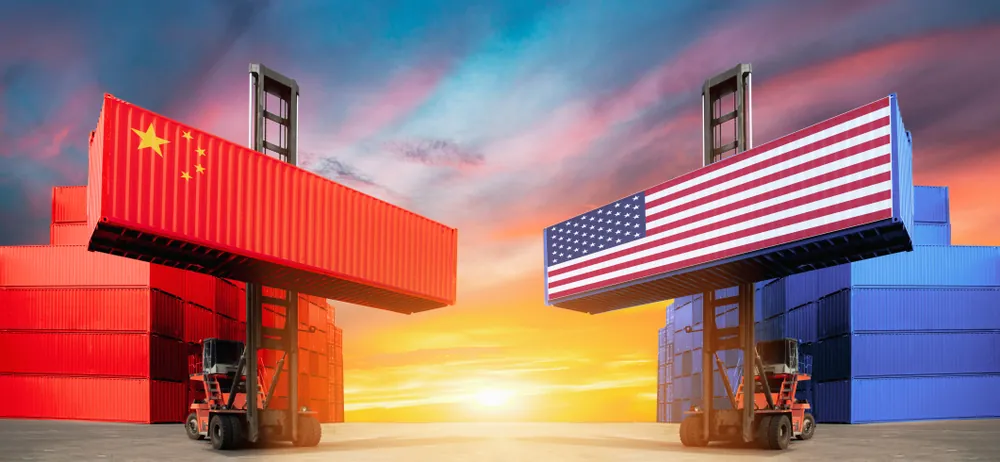
President Trump’s administration has introduced sweeping new tariffs that took effect on April 2, 2025. A baseline 10% tariff now applies to all imports coming into the United States, with significantly higher rates targeting specific countries. China faces the steepest increase at 104%, while European Union goods are subject to 20% tariffs. Industries hit hardest include automotive, steel manufacturing, and consumer electronics.
These tariffs aren’t just numbers on paper – they’re causing real disruption as freight budgets strain under rising equipment costs and customs delays. Many businesses are scrambling to adjust their supply chains and shipping strategies to avoid steep price increases. Meanwhile, trading partners are implementing retaliatory tariffs, reducing U.S. export volumes and further complicating international shipping.
For businesses that rely on global trade, these changes require quick adaptation. Many companies are reviewing their entire supply chain to find ways to offset these new costs while maintaining reliable delivery schedules.
For more information, you can read the full article here.
How FreightCenter Helps Navigate Tariffs and Supply Chain Challenges

At FreightCenter, we understand the complexities of global trade and the impact of new tariffs on shipping operations. We’re here to help businesses adapt and thrive with solutions tailored to the evolving landscape:
- Flexible Shipping Options: Access our extensive carrier network for cost-effective and reliable freight solutions.
- Optimized Supply Chains: Streamline operations to reduce costs and improve efficiency.
- Tariff Mitigation Strategies: Adjust supplier routes and explore alternative sourcing to minimize tariff impacts.
FreightCenter is committed to transforming shipping challenges into opportunities for your business.
Canadian Port Dispute Heads to Arbitration
Montreal port disruptions continue as labor disputes move to binding arbitration after failed negotiations.
Strikes since September have slowed cargo flow significantly at Montreal ports, costing businesses millions in delays. The dispute is finally moving to binding arbitration after negotiations failed to reach a resolution. However, the disruption has already forced many shippers to reroute cargo through alternative ports.
For companies using Canada’s East Coast ports, continued disruptions are likely until arbitrators reach a final decision. This uncertainty is pushing many businesses to develop backup plans for their shipping routes, including identifying alternative ports and transportation methods.
For more information, you can read the full article here.
Tariff-Driven Frontloading Boosts Los Angeles Port Volumes
Los Angeles port volumes surge as businesses rush to import goods before higher tariffs take effect.
Port volumes in Los Angeles have temporarily surged above normal levels due to tariff-driven frontloading of imports. This is especially notable with Canadian lumber imports, which caused flatbed trucking rates to jump 4 cents last week – the biggest weekly increase this year.
This rush to beat tariff deadlines creates a boom-and-bust pattern for shipping operations. While port activity is high now, analysts predict a 10% drop in volume during the second half of 2025 once the frontloading effect wears off. Companies need to carefully balance the desire to beat tariff deadlines against the risk of oversupply and increased warehouse costs.
For more information, you can read the full article here.
Trump Ends Duty-Free Treatment for Low-Value Shipments
President revokes exemption for Chinese imports under $800, disrupting e-commerce supply chains.
In a move that will significantly impact e-commerce, President Trump has ended the “de minimis” rule that previously allowed duty-free entry for shipments valued under $800 from China and Hong Kong. This change takes effect on May 2.
Small shipments from Chinese sellers will now face tariffs up to 34%, affecting popular online marketplaces like Temu and Shein. Air cargo providers specializing in small package delivery are bracing for significant operational and cost impacts. The administration says this change aims to reduce illicit imports (including synthetic opioids) and create fairer competition for American retailers.
For more information, you can read the full article here.
How FreightCenter Can Help: Frontloading Shipments
FreightCenter can coordinate expedited shipping schedules to bring goods into the U.S. before tariff increases take effect, minimizing immediate cost impacts. Our logistics experts work with businesses to develop tailored strategies that balance cost concerns with delivery timelines.
For more information about these services, you can read more here.
Stock Market Volatility Raises Questions for Supply Chains
Ongoing market uncertainty is forcing businesses to rethink logistics strategies and spending habits.
As investor confidence wavers and financial markets react to global instability, logistics operations are beginning to feel the effects. Fluctuations in the stock market often lead to reduced consumer demand, changes in capital allocation, and shifts in procurement behavior.
For the shipping industry, this translates to delayed freight movements, reduced inventory orders, and increased pressure on margins. Companies reliant on just-in-time delivery models or seasonal demand are especially vulnerable to the ripple effects of market swings. Publicly traded logistics firms face increased scrutiny from investors, which may impact decisions on expansion, hiring, and service offerings.
How FreightCenter Supports Businesses During Economic Uncertainty
At FreightCenter, we understand that financial instability doesn’t stop the need for goods to move. That’s why we offer tools and services to help businesses stay agile and control logistics costs even in volatile markets:
- Scalable Freight Solutions: Quickly adapt to volume fluctuations with flexible service options.
- Rate Comparisons in Real Time: Secure the most cost-effective rates from our carrier network to protect your bottom line.
- Strategic Shipment Planning: Optimize routes and timing to avoid unnecessary expenses or disruptions.
Our team is here to support you through uncertainty — with logistics solutions built for resilience.
For more information about our services, visit our website.
How Businesses Are Adapting to the New Reality
Despite these challenges, forward-thinking businesses are finding ways to adapt their shipping strategies.
Supply Chain Restructuring
Many companies are taking a fresh look at their entire supply chain. Some are shifting production to countries with lower tariff rates or exploring nearshoring options in Mexico and other nearby countries. Others are consolidating shipments to reduce per-unit costs or renegotiating supplier contracts to share tariff burdens.
Strategic Frontloading
Some businesses are accelerating imports to beat tariff implementation dates. This approach requires increasing warehouse capacity to handle larger inventory volumes and working with freight partners to secure container space before demand spikes. Companies must carefully time purchases to balance tariff avoidance against storage costs, sometimes using expedited shipping services to beat deadlines.
Technology Investment
Smart companies are leveraging technology to navigate the new landscape. Real-time tracking systems help monitor shipments through customs, while tariff calculation tools accurately forecast landed costs. Many businesses are adopting dynamic routing software to find the most cost-effective shipping paths and using digital customs documentation platforms to reduce paperwork delays.
Diversified Carrier Networks
Relying on a single shipping method or carrier has become increasingly risky. Forward-thinking companies are working with multiple ocean carriers to ensure availability and developing relationships with air freight providers for time-sensitive shipments. Building redundancy into trucking partnerships and creating contingency plans for port closures or delays have become standard practice for resilient supply chains.
Looking Ahead: What’s Next for Freight in 2025
As the year progresses, several factors will continue to shape the freight landscape.
The administration has signaled that tariff rates may be adjusted based on trade negotiations and economic indicators. Businesses should stay alert for potential changes in either direction. Countries affected by U.S. tariffs are still formulating their complete responses, and additional retaliatory measures could further complicate international shipping.
On the domestic front, the administration has discussed significant infrastructure investment that could improve domestic shipping efficiency, potentially offsetting some international challenges. We can also expect accelerated adoption of automation, AI for route optimization, and blockchain for documentation as the industry seeks efficiency gains to offset higher costs.
Financial pressures may lead to further consolidation among shipping carriers, potentially reducing competition in some markets. This trend bears watching as it could affect pricing and service availability in the longer term.
Adaptability is Key
The freight industry is no stranger to change, but the current convergence of tariffs, labor disputes, and market volatility presents unique challenges. Businesses that approach these challenges with flexibility and strategic planning will be best positioned to weather the storm.
By working with experienced partners like FreightCenter, companies can transform these shipping challenges into opportunities. Whether it’s finding more cost-effective routes, optimizing shipping schedules, or simply having expert guidance through an increasingly complex regulatory landscape, the right freight partner can make all the difference.
As the situation continues to evolve, staying informed and agile will be essential. Keep an eye on policy announcements, market trends, and emerging shipping alternatives. With proper planning and the right resources, your business can navigate these changes successfully.

